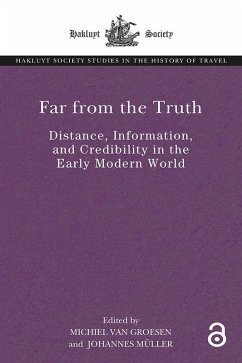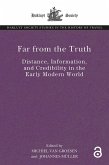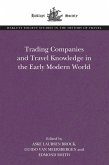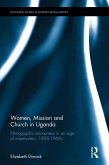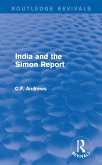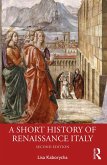Far From the Truth (eBook, ePUB)
Distance, Information, and Credibility in the Early Modern World
Redaktion: Groesen, Michiel van; Müller, Johannes
0,99 €
0,99 €
inkl. MwSt.
Sofort per Download lieferbar

0 °P sammeln
0,99 €
Als Download kaufen

0,99 €
inkl. MwSt.
Sofort per Download lieferbar

0 °P sammeln
Jetzt verschenken
Alle Infos zum eBook verschenken
0,99 €
inkl. MwSt.
Sofort per Download lieferbar
Alle Infos zum eBook verschenken

0 °P sammeln
Far From the Truth (eBook, ePUB)
Distance, Information, and Credibility in the Early Modern World
Redaktion: Groesen, Michiel van; Müller, Johannes
- Format: ePub
- Merkliste
- Auf die Merkliste
- Bewerten Bewerten
- Teilen
- Produkt teilen
- Produkterinnerung
- Produkterinnerung

Bitte loggen Sie sich zunächst in Ihr Kundenkonto ein oder registrieren Sie sich bei
bücher.de, um das eBook-Abo tolino select nutzen zu können.
Hier können Sie sich einloggen
Hier können Sie sich einloggen
Sie sind bereits eingeloggt. Klicken Sie auf 2. tolino select Abo, um fortzufahren.

Bitte loggen Sie sich zunächst in Ihr Kundenkonto ein oder registrieren Sie sich bei bücher.de, um das eBook-Abo tolino select nutzen zu können.
This volume will be an essential companion to those interested in the history of knowledge and early modern encounters, as well as specialists in the history of empire and print culture.
- Geräte: eReader
- ohne Kopierschutz
- eBook Hilfe
- Größe: 4.89MB
Andere Kunden interessierten sich auch für
![Far From the Truth (eBook, PDF) Far From the Truth (eBook, PDF)]() Far From the Truth (eBook, PDF)0,99 €
Far From the Truth (eBook, PDF)0,99 €![Trading Companies and Travel Knowledge in the Early Modern World (eBook, ePUB) Trading Companies and Travel Knowledge in the Early Modern World (eBook, ePUB)]() Trading Companies and Travel Knowledge in the Early Modern World (eBook, ePUB)41,95 €
Trading Companies and Travel Knowledge in the Early Modern World (eBook, ePUB)41,95 €![Women, Mission and Church in Uganda (eBook, ePUB) Women, Mission and Church in Uganda (eBook, ePUB)]() Elizabeth DimockWomen, Mission and Church in Uganda (eBook, ePUB)47,95 €
Elizabeth DimockWomen, Mission and Church in Uganda (eBook, ePUB)47,95 €![Routledge Revivals: India and the Simon Report (1930) (eBook, ePUB) Routledge Revivals: India and the Simon Report (1930) (eBook, ePUB)]() C. F. AndrewsRoutledge Revivals: India and the Simon Report (1930) (eBook, ePUB)39,95 €
C. F. AndrewsRoutledge Revivals: India and the Simon Report (1930) (eBook, ePUB)39,95 €![Irish Identities in Victorian Britain (eBook, ePUB) Irish Identities in Victorian Britain (eBook, ePUB)]() Irish Identities in Victorian Britain (eBook, ePUB)45,95 €
Irish Identities in Victorian Britain (eBook, ePUB)45,95 €![Landscape and Identity in North America's Southern Colonies from 1660 to 1745 (eBook, ePUB) Landscape and Identity in North America's Southern Colonies from 1660 to 1745 (eBook, ePUB)]() Catherine ArmstrongLandscape and Identity in North America's Southern Colonies from 1660 to 1745 (eBook, ePUB)41,95 €
Catherine ArmstrongLandscape and Identity in North America's Southern Colonies from 1660 to 1745 (eBook, ePUB)41,95 €![A Short History of Renaissance Italy (eBook, ePUB) A Short History of Renaissance Italy (eBook, ePUB)]() Lisa KaborychaA Short History of Renaissance Italy (eBook, ePUB)37,95 €
Lisa KaborychaA Short History of Renaissance Italy (eBook, ePUB)37,95 €-
-
-
This volume will be an essential companion to those interested in the history of knowledge and early modern encounters, as well as specialists in the history of empire and print culture.
Dieser Download kann aus rechtlichen Gründen nur mit Rechnungsadresse in A, B, BG, CY, CZ, D, DK, EW, E, FIN, F, GR, HR, H, IRL, I, LT, L, LR, M, NL, PL, P, R, S, SLO, SK ausgeliefert werden.
Produktdetails
- Produktdetails
- Verlag: Taylor & Francis
- Seitenzahl: 276
- Erscheinungstermin: 28. Dezember 2023
- Englisch
- ISBN-13: 9781003845454
- Artikelnr.: 69629677
- Verlag: Taylor & Francis
- Seitenzahl: 276
- Erscheinungstermin: 28. Dezember 2023
- Englisch
- ISBN-13: 9781003845454
- Artikelnr.: 69629677
- Herstellerkennzeichnung Die Herstellerinformationen sind derzeit nicht verfügbar.
Michiel van Groesen is Professor of Maritime History at Leiden University. His work is interdisciplinary in nature, focusing on the culture of early modern Europe's imperial expansion and the politics of global interactions. He is the author of two books, Representations of the Overseas World in the De Bry Collection of Voyages, 1590-1634(Brill, 2008) and Amsterdam's Atlantic: Print Culture and the Making of Dutch Brazil (Penn, 2017). He is currently completing a monograph on the circulation of news and information in the Atlantic world, which is provisionally entitled An Ocean of Rumours , and will appear with Cambridge University Press. Johannes Müller is an assistant professor at the Leiden University Centre for the Arts in Society. His research focuses on environmental history, memory studies, and the history of knowledge. Among his publications are the volumes Exile Memories and the Dutch Revolt: The Narrated Diaspora, 1550-1750 (Brill, 2016), Memory before Modernity. Practices of Memory in Early Modern Europe (Brill, 2013, co-edited with Judith Pollmann, Erika Kuijpers, and Jasper van der Steen), and he is currently preparing a book manuscript on the impact of climate on fish and fisheries with marine biologist Daniel Pauly.
Introduction
van Groesen and Müller / 1. Reports from the Edges of Iberian Empire
Blackmore / 2. Distance and Credibility in Sixteenth
Century Travel Writing: Discovery, Text, and Truth in Varthema, Vespucci, and Pigafetta
Rubiés / 3. Copies with Wings: Bridging Distances by Printing the Familiar
Leitch / 4. The Philippines: Islands of the Mind
Padrón / 5. Knowledge and Its Opposite: Antiquity, Parody, and Geographical Distance in Gabriel Rollenhagen's Four Indian Voyages
Müller / 6. "I Am Giving You As Much As I Have": Distance and Credibility in Théophraste Renaudot's Gazette
van Groesen / 7. Contracting Trust? The Many Lives of Afro
European Treaties
Brauner / 8. Joseph Williamson and the Information Order of the Early English Empire
Popper / 9. Emotions as Guide to Untrustworthiness: John Lockman's Struggle with What He Could Not Check
Dürr / Epilogue
Ogborn.
van Groesen and Müller / 1. Reports from the Edges of Iberian Empire
Blackmore / 2. Distance and Credibility in Sixteenth
Century Travel Writing: Discovery, Text, and Truth in Varthema, Vespucci, and Pigafetta
Rubiés / 3. Copies with Wings: Bridging Distances by Printing the Familiar
Leitch / 4. The Philippines: Islands of the Mind
Padrón / 5. Knowledge and Its Opposite: Antiquity, Parody, and Geographical Distance in Gabriel Rollenhagen's Four Indian Voyages
Müller / 6. "I Am Giving You As Much As I Have": Distance and Credibility in Théophraste Renaudot's Gazette
van Groesen / 7. Contracting Trust? The Many Lives of Afro
European Treaties
Brauner / 8. Joseph Williamson and the Information Order of the Early English Empire
Popper / 9. Emotions as Guide to Untrustworthiness: John Lockman's Struggle with What He Could Not Check
Dürr / Epilogue
Ogborn.
Introduction
van Groesen and Müller / 1. Reports from the Edges of Iberian Empire
Blackmore / 2. Distance and Credibility in Sixteenth
Century Travel Writing: Discovery, Text, and Truth in Varthema, Vespucci, and Pigafetta
Rubiés / 3. Copies with Wings: Bridging Distances by Printing the Familiar
Leitch / 4. The Philippines: Islands of the Mind
Padrón / 5. Knowledge and Its Opposite: Antiquity, Parody, and Geographical Distance in Gabriel Rollenhagen's Four Indian Voyages
Müller / 6. "I Am Giving You As Much As I Have": Distance and Credibility in Théophraste Renaudot's Gazette
van Groesen / 7. Contracting Trust? The Many Lives of Afro
European Treaties
Brauner / 8. Joseph Williamson and the Information Order of the Early English Empire
Popper / 9. Emotions as Guide to Untrustworthiness: John Lockman's Struggle with What He Could Not Check
Dürr / Epilogue
Ogborn.
van Groesen and Müller / 1. Reports from the Edges of Iberian Empire
Blackmore / 2. Distance and Credibility in Sixteenth
Century Travel Writing: Discovery, Text, and Truth in Varthema, Vespucci, and Pigafetta
Rubiés / 3. Copies with Wings: Bridging Distances by Printing the Familiar
Leitch / 4. The Philippines: Islands of the Mind
Padrón / 5. Knowledge and Its Opposite: Antiquity, Parody, and Geographical Distance in Gabriel Rollenhagen's Four Indian Voyages
Müller / 6. "I Am Giving You As Much As I Have": Distance and Credibility in Théophraste Renaudot's Gazette
van Groesen / 7. Contracting Trust? The Many Lives of Afro
European Treaties
Brauner / 8. Joseph Williamson and the Information Order of the Early English Empire
Popper / 9. Emotions as Guide to Untrustworthiness: John Lockman's Struggle with What He Could Not Check
Dürr / Epilogue
Ogborn.
